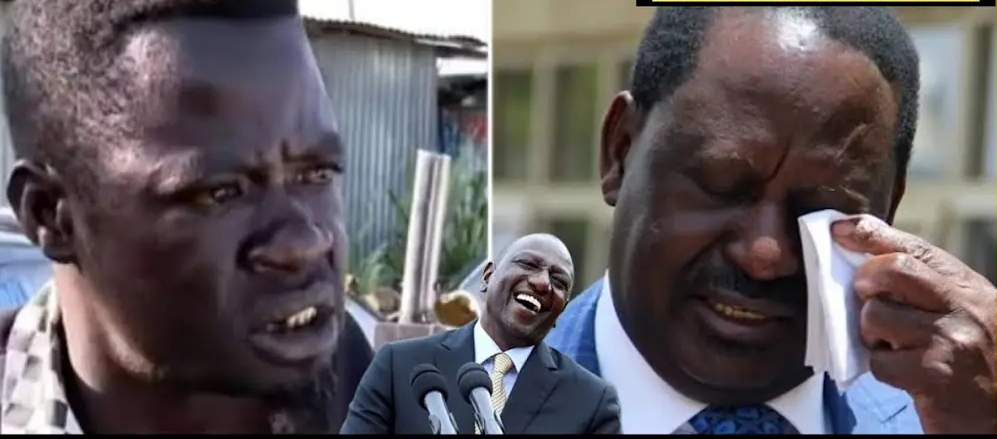The political landscape in Kenya took a surprising turn when one of Raila Odinga’s staunch supporters, Luo Man, publicly criticized him in unthinkable terms. “Wewe ni fala,” he exclaimed, translating to “you are a fool,” after Raila agreed to a dialogue with President William Ruto.
This unexpected betrayal has sent shockwaves through the ranks of Raila’s supporters, particularly among Generation Z who had placed their hopes in him as a steadfast opposition leader.
For many, Raila’s decision to engage in dialogue with President Ruto is seen as a capitulation, a move that undermines the essence of having a robust opposition.
A government without a strong opposition is a recipe for unchecked power, something that Raila himself has fought against for decades.
The vocal criticisms from within his own community underscore the deep disappointment and sense of betrayal felt by his supporters, who now question his commitment to their cause.
The necessity of an opposing side in government cannot be overstated.
It ensures that the ruling party is held accountable and that diverse viewpoints are represented.
The current situation has highlighted the critical role that opposition plays in the democratic process.
Without it, there is a risk of eroding public trust and diminishing the vibrant political discourse that is essential for a healthy democracy.
Raila’s acceptance of dialogue, while potentially beneficial in some respects, has ignited a debate about the future of opposition politics in Kenya.


